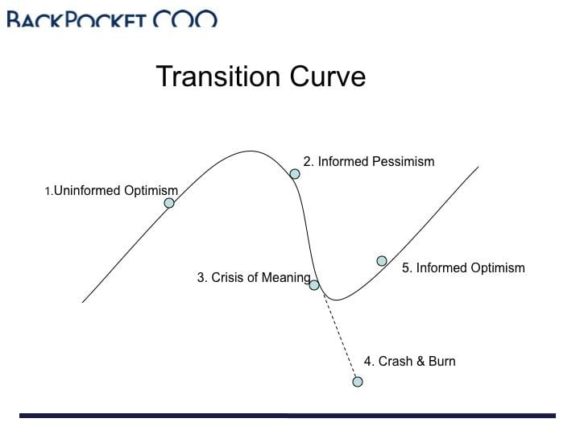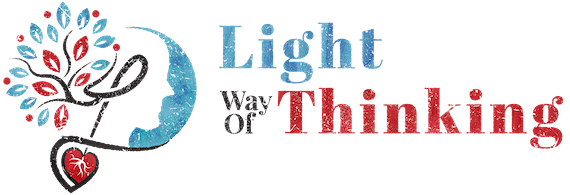It happened again, I couldn’t bring myself to do anything.
After getting my worry and stress levels down by reading How To Stop Worrying And Start Living, I have been doing pretty well.
But then one night, I couldn’t sleep. What brought it on? Was it the constant pushing for work even long after work hours stopped because of my slacking during the day? Was it going to the gym late and needing to relax after, so I ended up going to bed at 1-2AM? Or maybe it was finishing The Truth and getting reminded of all my therapy work 2 years ago and how I felt?
Everything just combined together and out came my depression. The questions started coming up:
“What if I never solve my intimacy issues?”
“What if I’m always a screw up with women?”
“What if I’m never good enough?”
“Why can’t I work faster?”
The morning after I thought I could handle at least a meeting I had setup and a dentist appointment… but no, I could hardly move. My brain was whipping me, trying to get me up to do my morning routine and wake up on time at 7AM, but I had no energy whatsoever.
Burnout.
…Fuck, again?
Let’s talk about burnout – why it happens, my experiences with it, and how you can recover and prevent it from happening. I crowdsourced some help, asking readers if they’ve ever dealt with burnout and how they recovered, and you’ll also get their advice here.
Medical Disclaimer
The information provided on this website is designed to provide helpful information on the subjects discussed. This information is not meant to be used, nor should it be used, to diagnose or treat any medical condition. It is not intended to be a substitute for professional medical advice, diagnosis, or treatment. For diagnosis or treatment of any medical problem, consult your own physician and never disregard professional medical advice or delay in seeking it because of something you have read on this website. We are not responsible for any specific health needs that may require medical supervision and are not liable for any damages or negative consequences from any treatment, action, application, or preparation of the information on this website. This website does not promote or endorse any illegal use of medication of any kind. We shall not be liable for any physical, psychological, emotional, financial, or commercial damages, including, but not limited to, special, incidental, consequential or other damages on behalf of the reader. For more details, please review our Terms of Service.
Here’s a video talking I made talking about how to recover from burnout:
What Is Burnout And Why Does It Happen?
Burnout is actually usually a GOOD thing. It’s when you’ve pushed yourself too hard and your body shuts you down so you are put into rest mode. It MAKES you stop and re-charge.
It’s a form of depression, but not long lasting and caused by a specific string of events. Unfortunately, it can couple with long-standing mental depression (self-criticism, depressive/suicidal thinking, catastrophizing), and cause bigger issues.
There are many hormones associated with stressful situations, but the main one involved in burnout is cortisol [1]. Cortisol levels rise when stress is present, and once the stress goes away, the levels return to normal. But if you are continuously stressed, your brain won’t lower your cortisol levels, resulting in rapid weight gain, high blood pressure, muscle weakness, mood swings, anxiety, depression, and burn out [2].
Yay.
Burnout is especially inventible for crazy type-A overachievers (like me!) and entrepreneurs, many of which are diagnosed as being manic: going from incredibly happy and optimistic to depressed and thinking the world will end.
Cameron Herold described this as the “entrepreneurial rollercoaster”, and actually provided what you should be doing at different stages along the curve.
What I’ve learned is that the MIND can’t always be trusted, but the BODY can.
If you physically feel extremely weak and can’t move, that means you need to stop. If your mind says “Uh oh, I don’t know about this…”, that’s not as trust worthy (your mind lies to you a lot unfortunately).

Cameron Herold’s “entrepreneurial rollercoaster”, showing the stages all entrepreneurs go through, and explaining why they are almost all manic-depressive. Read more about that here.
There Was A Time I Was Myself Burning Out Every 2 Weeks
Back when I was living in Canada, I was super stressed all the time. Funny how now I have less money and am further away from comfort, but had been doing a pretty good job at keeping my stress level down :p. I think I’d burned out before, but starting in November 2014 is when I REALLY started to feel the stuff.
Living on savings, moving all my stuff 6-7 times within 5 months in the SAME CITY, not knowing what I actually wanted to do with my life…
Yeah, it wasn’t that great. At all. Back then, I burned out from overwork.
Then when I moved to Vietnam, I made a HUGE mistake. I didn’t even contemplate how much stacking so many big things all at once would hit me:
I broke up with a girl I was seeing who was very important to me.
I moved half-way across the world.
I was stressing to get my book out.
I was also trying to find a part-time job at the time, otherwise I’d be broke.
I needed to find some friends to be with for support – I had no one in the city.
Then me and the girl had a falling out and went communication 0.
That all REALLY hit me, and looking back, I can’t believe what I put myself through and hard I was on myself. But at the same time, it was a pretty epic time.
So… yeah. I don’t pretend to be perfect at all this stuff.
BUT, I am slowly figuring out why this happens. Back in Canada, I was burning out at a rate of every 2 weeks. Now, it’s maybe every 2-3 months: a huge improvement.
I look now and realize all the stuff that led up to it which I need to keep working on:
- My mind was chastising me for not working hard enough, when I was doing more than full days. I listened.
- I was dicking around during the day, pushing my work schedule back further and further. I don’t really care about random YouTube videos, I don’t need to watch every single one. I prefer a good bed time and having time to go on dates and be with friends.
- I was trying to force errands and mini-tasks on my breaks. Once in a while this is OK, otherwise fuck it, they’ll get done another day.
The funny thing is my brain started thinking I was a failure, spewing out nonsense to worry about, life sucked, etc. when just a few days before I was bouncing around about all the opportunities I had.
So now to answer the all important questions:
How can you get back to normal life after burnout?
And,
How can you prevent it from ever happening (if it’s never happened to you – lucky duck) ever again?
A Guide To Recovering From Burnout In 7 Days
Phase 0/Day 0 – Actual burn out
Today is the day when you actually experience burn out, in that after the day or during it, you feel like you’ve over done it. You probably won’t REALLY feel it until the day after, but I call this day 0, when “the infection” hits.
There’s not much to do here, because the damage has been done. All the trying to manage people, responsibilities, and tasks to be done hits you. You feel like you haven’t been acknowledged, like you haven’t given yourself breaks, and like life is WAY too serious.
Phase 1/Days 1-2 – Isolation, rejuvenation, contemplation
Here is when you actually feel the effects of burn out. The common signs are:
- You don’t want to/can’t get out of bed.
- You don’t want to see anyone.
- You feel COMPLETELY unmotivated to do ANYTHING, even the stuff you care about.
- You might feel like crying.
- You feel generally depressed or anxious.
- You’re worried and thinking “What’s in my phone? What’s in my e-mail?”, hoping you don’t get other things to do.
On this day, I’d recommend trying to be as isolated as possible. This is so you don’t have to deal with more things, e.g. no managing other people’s emotions or boundaries. You’re taking care of yourself 100%. Sure, if someone you’re really close to and love calls/texts you, tell them what’s up, but ask them to respect your boundaries so you can recover.
I’m NOT advocating this if you get to the point of having really dark (or suicidal thoughts). In that case or if you feel you REALLY need help, CALL SOMEONE. Isolate yourself if you feel generally OK but just overwhelmed and like you need to connect back to your core.
Try to sleep and rest as much as possible, and offload all “responsibilities”, e.g. order in food.
Journal (and if you aren’t making use of the most important tool in your self-improvement and don’t have one, GET ONE) about how you feel, and why you feel it. Think about WHY this happened. You’ll do this in more detail later, but it can help to just list out the reasons now.
I also let myself cry it out & write in my feelings journal (or notepad on my phone if that’s what’s handy) …[Also], offering myself some self-compassion (and hugs – the body doesn’t differentiate between hugs from self vs hugs from someone else). After all of that, and a good night’s sleep, the next day’s usually better.Helena, Reader of LWOT
I like to watch/listen to things that make me happy. Inspirational or funny movies work for me, but other things might work better for you. Stay the hell away from depressive music and movies – that’d be brooding on the emotion and feeding it. You want to feel the emotion and why it happened, but then slowly get out of it.
Some ideas for inspirational or funny stuff you can watch:
- Up
- A Day In The Life
- The Lego Movie
- The Alchemist
- Any stand-up with Louis C.K. Or Dave Chapelle
- Superbad
- Happy Gilmore
Also awesome video games can work well too. Check out Charlie Hoehn’s list of anti-news for more ideas.
Phase 2/Days 3-4 – Semi-productivity (half-day of work), talking to friends, aggressive exercise
Now you’re going to want to start getting back to your regular routine and bring yourself back to normal life. Sitting around not being productive is going to make you feel WORSE, especially if you’re a Type-A.
BUT, if you overwork or rush too fast into things, you’ll burn out again.
So try and get up at your regular time, do your morning routine, and then do a half day of work.
You should also (if you haven’t already), try to hang out with your friends. If you weren’t in dire straights during days 1-2, tell them what happened and ask for their feedback. Maybe they’ve been through the same thing and have some advice. Or, they can just support you.
Keep track of any advice you get.
You should also do AGGRESSIVE exercise now. Exercise gets your positive mood back up with endorphins and dopamine.
I also say AGGRESSIVE because you want to aim for something similar to kickboxing or weight lifting, where you can purposely be a bit violent. Hit harder. Slam the weights when you lift or rack them. You’ll be getting your stress and aggression out in “respectable” or OK ways versus turning those emotions to other people on in on yourself.
Phase 3/Days 5-6 – Gradually lifting back to normal life
You start to get back to full days of work. You should still be taking it easy at night, focusing on your health, and not piling on to many responsibilities. Again, you just went through a lot.
Phase 4/Day 7 – List reasons why burnout occurred, what caused it, and how you can work on preventing it
This is the most crucial step. You don’t want this to happen again, and you want to minimize how often it happens.
Brainstorm why this might have happened. Take what you’ve written over the past few days in your journal and what your friends have suggested.
Some common causes of burnout are:
- Not sleeping at the proper time/a good amount of hours.
- Constantly changing your schedule (wake up/bed times).
- Too many open loops or responsibilities (you said yes to too much).
- Not exercising or letting your diet super slip (pizza/McD’s every day).
- Not doing your work during the day and having to consistently work over time into your personal time and space.
Burn out is a tough one and something I feel that, as a society, we deal with far too often. As you’ve said it comes with over working, over stressing, over ANYTHING that we feel we need to do in order to keep up with whatever ideal we have in our mind. We are constantly trying to prove ourselves, trying to meet unrealistic expectations to show we are worthy. Worthy of what, I have no idea. It’s something society says we have to do.I find that I tend to be in a chronic state of burn out-it’s the nature of where I’m at right now and I will be more than grateful when it’s over. Regardless, whenever I feel myself getting particularly overwhelmed, the best way I find to bring attention to it and to redirect myself is to STOP. I don’t mean that as in “Hey, stop stressing,” I mean that as literally stop EVERYTHING. I don’t care what I’m doing, I will drop it, sit my ass down right where I am and just breathe. I repeat to myself over and over again, “Stop. You’re having a moment, Stop.” When I feel relatively steady, I will take the time to re-prioritize whatever has me worked up. Sometimes that restructuring of the problem gives me the perspective I needed all along.Liz, Reader of LWOT
You can watch this Ted Talk to learn more about burnout research (it’s not always YOUR fault):
For example: I think most of what caused my recent burnout was getting up late, and not controlling my procrastination during the day. E.g., I’d be fucking around on YouTube and blogs, time would pass, but I’d still have to get a certain amount of work done. This would push off the gym, and when I came home I felt like I hadn’t had personal or relaxation time so I’d just veg in front of the TV until 1-2AM. I also had no willpower to stop myself from doing this, didn’t sleep well, and then entered into a very bad self-criticism cycle.
So the main causes seem to be: scheduling, discipline, and a bit of procrastination.
Now my mind will ALWAYS want to just piss off on YouTube, but I need to reign myself in because then I’ll never get anything done, and honestly, watching YouTube doesn’t make me super happy.
As time goes on, I’d like to decrease this, but I think this is reasonable right now.
I’m tracking my work hours and how I do this week on this, and I’ll report to my accountability group.
Of course it might take you longer than the 7 days than I’ve listed for each “phase”, depending on the severity of the burnout. Maybe the burnout lasts a month, or even a year. But if it’s just a bit of overwork and stress, I’m confident you can be back to things in a week…
Just make sure you don’t go as fast, ask yourself how serious you really need to take your worries, and make sure to laugh at yourself a bit.
Image credit: Wiki Commons, Wikipedia
[1]. FutureVisions. “Burnout Hormones: Creating Sustainable Results In Growth And Performance.” FutureVisions. Accessed: 24 Nov. 2015. Retrieved from: http://www.futurevisions.org/crr_burn-out.htm. [2]. Hansen, Fawne. “How Do Cortisol Levels Change Throughout The Day?” The Adrenal Fatigue Solution. Accessed: 24 Nov. 2015. Retrieved from: http://adrenalfatiguesolution.com/cortisol-levels-change-throughout-day.



Comments 4
Awesome post and video Noam! I’ve definitely experienced burnout before and not really been aware of what was happening. The issue for me is that us “type A” peeps just want to keep going and we feel so guilty to take a break. Very thorough article – this will definitely keep me more aware of burnout and how to deal with it in the future.
Author
Hell yes David, doesn’t it suck sometimes??
I think once you’re aware of the problem, you can define when enough is enough. In our society (and with 4HWW thinking/automation), there’s a sick productivity game to get more and more done…. But isn’t the point to automate and be efficient so you get work done in less time and can do OTHER stuff? Check this article out: http://blog.pickcrew.com/waste-time-with-the-ones-you-love/
And doesn’t EVERYONE deserve a break?
Can’t claim to be perfect, but getting better. Used to never take ANY days off during the week. Now I’ve officially got a “Sabbath” day and take mini-retirements… The Sabbath days have HUGE impacts on my mental health for sure.
Wow, this comes at a great time when I was burnt out the whole of the last two weeks, beautifully written in a very unconventional yet very nice style that is typical of you Noam. Thanks for the great content and simply thinking about burnout as a “good” thing really helps with a shift in perspective. Hope you’re doing well mate, cheers.
Author
Thanks Keshav man, glad you enjoyed it and got something from it. Sawadee ka from Thailand!